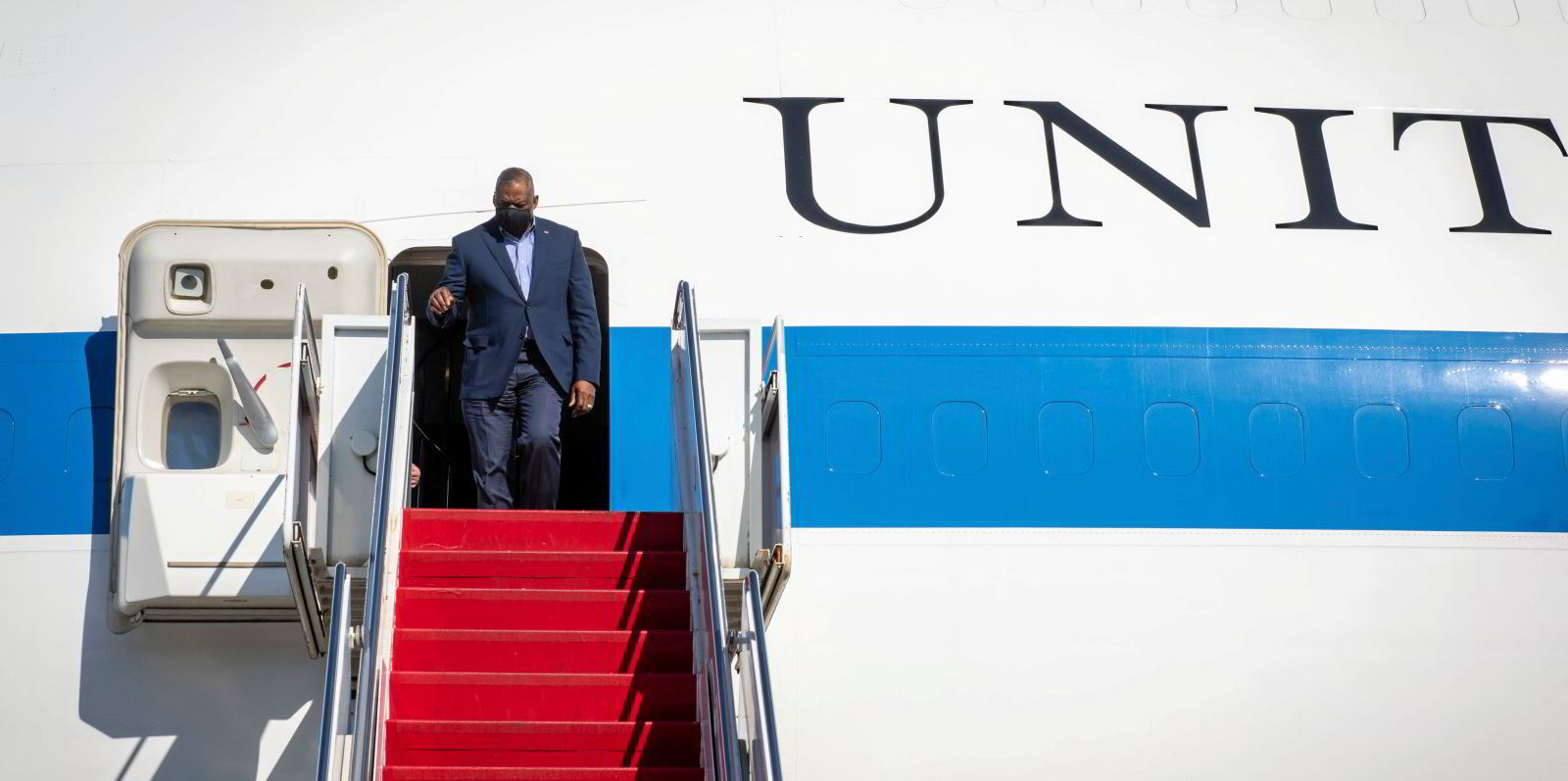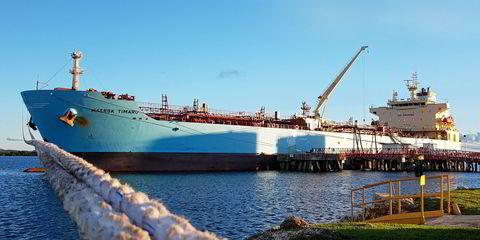The US is reportedly set to launch a new coalition to help defend the shipping industry following the recent spate of attacks in the Bab al-Mandeb strait by Houthi militants.
The new task force will be called Operation Prosperity Guardian and will be announced during Secretary of Defense Lloyd Austin’s visit to the Middle East this week, multiple media outlets have reported.
The Department of Defense has been approached for confirmation.
Austin departed for a multi-day trip to the region over the weekend with stops in Israel, Qatar and Bahrain.
The department said Austin is expected to visit US Navy forces in Bahrain.
“Part of the discussions there between the US and Bahrain will involve US efforts to convene multilateral coalitions to respond to aggression at sea that threatens shipping and the global economy,” it said.
So far, five liner companies — HMM, AP Moller-Maersk, Hapag-Lloyd, MSC Mediterranean Shipping Company and CMA CGM — have announced that they will route ships around the Cape of Good Hope following a month’s worth of Houthi attacks that intensified last week.
Norwegian investment bank Fearnley Securities said Belgium has declared the region a war area and domestic owners have said they will not sail through.
A spokeswoman for Saverys-owned tanker company Euronav and Compagnie Maritime Belge (CMB), with a mixed fleet, told TradeWinds: “We will avoid the area until further notice.”
“We are monitoring the situation very closely. The safety of our crew and our ships is paramount,” she said.
The Houthis, which control part of Yemen, began attacking Israeli-linked ships when it hijacked the 5,100-ceu Galaxy Leader (built 2002) on 19 November.
The Suez Canal Authority said only 55 vessels have diverted from the canal since 19 November, out of 2,128 transits. Rates have yet to move in any big way, but Fearnley said this could change.
The Galaxy Leader is owned by Ray Car Carriers, which is headed up by Israeli magnate Abraham Ungar.
Several attacks followed but, on 9 December, the Houthis announced that they would broaden the scope of attack candidates to any vessel heading to Israel rather than ships judged to be under Israeli control.
Over the next week, six ships suffered various attacks, from missile attacks to boardings.
Last week, Xenta chief analyst Peter Sand told TradeWinds that a containership opting to sail south rather than use the Suez Canal would add 10 days’ sailing time for a voyage from Asia to the East Mediterranean or northern Europe.
He said diversions could double freight rates.





